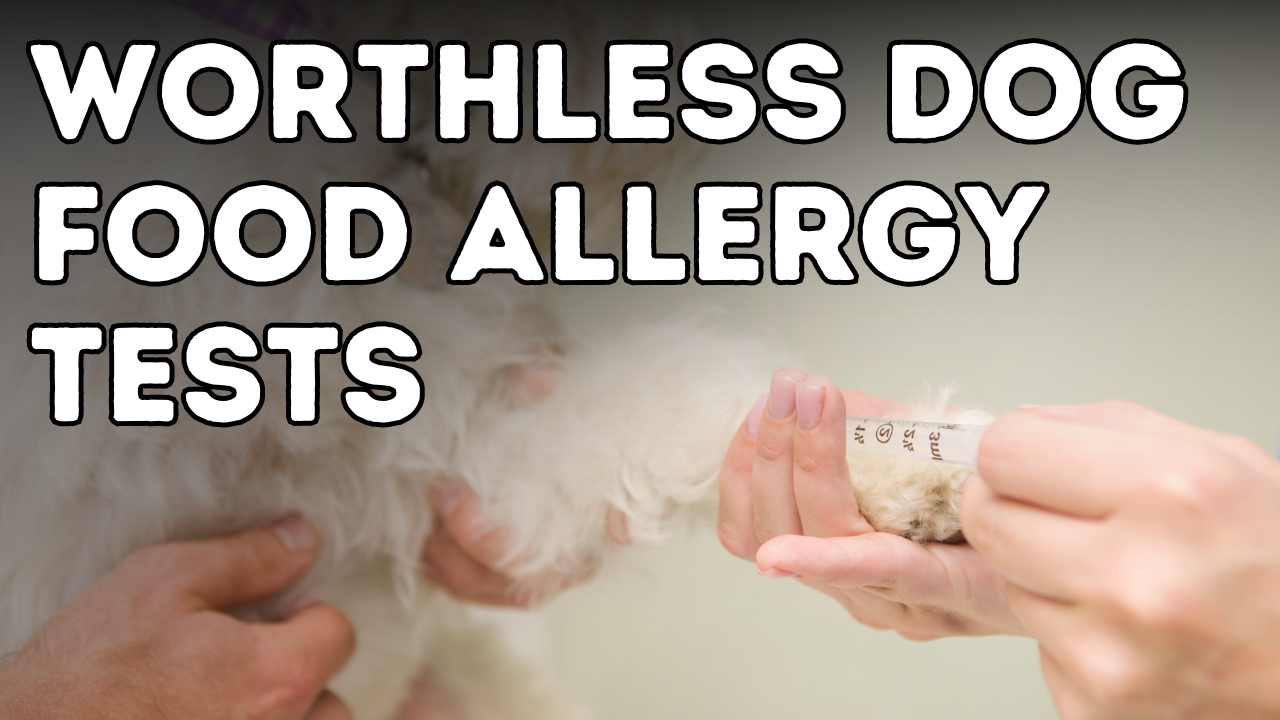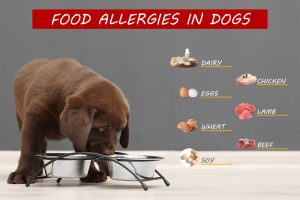Why Dog Food Allergy Tests Often Fail: What You Need to Know

You have not likely done a proper food trial for your allergic dog. In this newsletter I’ll show you an easier way.
Some dogs are now allergic to chicken, so we have just finished our NEW hypoallergenic Dr Jones’ ULTIMATE Canine Health Formula Salmon flavor.


Up to 15% of dogs may experience food allergies. The most common food allergens in dogs are proteins, particularly those derived from dairy, beef, chicken, chicken eggs, soy, or wheat gluten. While proteins are the most frequent allergens, virtually any ingredient, including other substances and additives, can provoke an allergic response. It is crucial to note that no diets are completely “hypoallergenic"; the closest options are hydrolyzed diets available through veterinarians. Dogs and cats can be allergic to any protein or carbohydrate present in pet food.
Diagnosing Food Allergies in Dogs
Diagnosing food allergies presents challenges as there is no simple test. Various tests—including those that analyze blood, saliva, and hair—can be conducted by a veterinarian or purchased online by pet owners, although none have proven definitively reliable. The most accurate method for diagnosing food allergies in dogs remains the dietary elimination trial.
Conducting a Dietary Elimination Trial
A true elimination trial requires feeding your dog a special diet that excludes any ingredients previously consumed. During the trial, you must avoid giving any other foods, treats, or supplements, including flavored vitamins and certain parasite preventives. If your dog’s allergy symptoms resolve during the trial and then return within a week of reintroducing the original food, the diagnosis of a food allergy is confirmed.
Veterinary Diets for Allergic Dogs
Veterinary diets that feature hydrolyzed proteins, where the protein molecules are broken down to a size too small for the dog’s immune system to recognize, are recommended. Examples include Hill’s Prescription Diet z/d, Royal Canin Hypoallergenic Hydrolyzed Protein or Anallergenic, and Purina ProPlan Veterinary Diets HA Hydrolyzed.
Homemade Dog Food Trial Recipe
To conduct a homemade food trial, consider the following recipe:
- Protein: 1/3 portion (1 lb) of chopped and cooked turkey
- Carbohydrate: 1/3 portion (2 cups) of cooked brown rice
- Vegetable: 1/3 portion (2 cups) of cooked kale or (1 cup) of frozen mixed vegetables
- Fats: 2 tablespoons of sunflower oil and 1000mg of krill oil
- Supplements: 1 teaspoon (1500mg) of calcium, preferably in powder form to avoid potential allergens like eggshells
Feed a 50 lb dog half of this recipe twice daily. Continue feeding this diet exclusively for at least 6 weeks, and ideally for 12 weeks. Approximately 80% of dogs respond positively by the 6-week mark.
Dr. Jones’ Ultimate Canine Health Formula has been used by over 10,000 dog owners, yielding excellent results and reviews. Additionally, consider trying our new hypoallergenic Salmon flavor, now available.
This organized and detailed approach to ruling out food allergies in dogs through a food trial helps ensure clarity and adherence to the recommended practices.

We have 5 cats ages from 2yrs to almost 7yrs and one Pit Bull Mix that’s 6yrs old. All but one of them are Scratching and biting sores on themselves and I know it’s the Frisky Canned food we feed them. Because the dog changed his diet to their food when he moved in less then 7mos ago. The one cat will only eat Tuna from a can with water based!
But now I have real evidence on a direction for the entire house!! Thank you for all you’ve shared to make life easier, Healthier and Furry Fun!!???
Hi, try other recipes we have:
https://veterinarysecrets.com/?s=diet
Horse meat and carrots that’s what I feed my dog . She is allergic to everything
Can you please recommend a brand of Krill oil to use in the dog food?
Hi Susan, we (Dr. Jones) have our own, here:
https://shop.veterinarysecrets.com/supplements/ultimate-omega3-formula.html